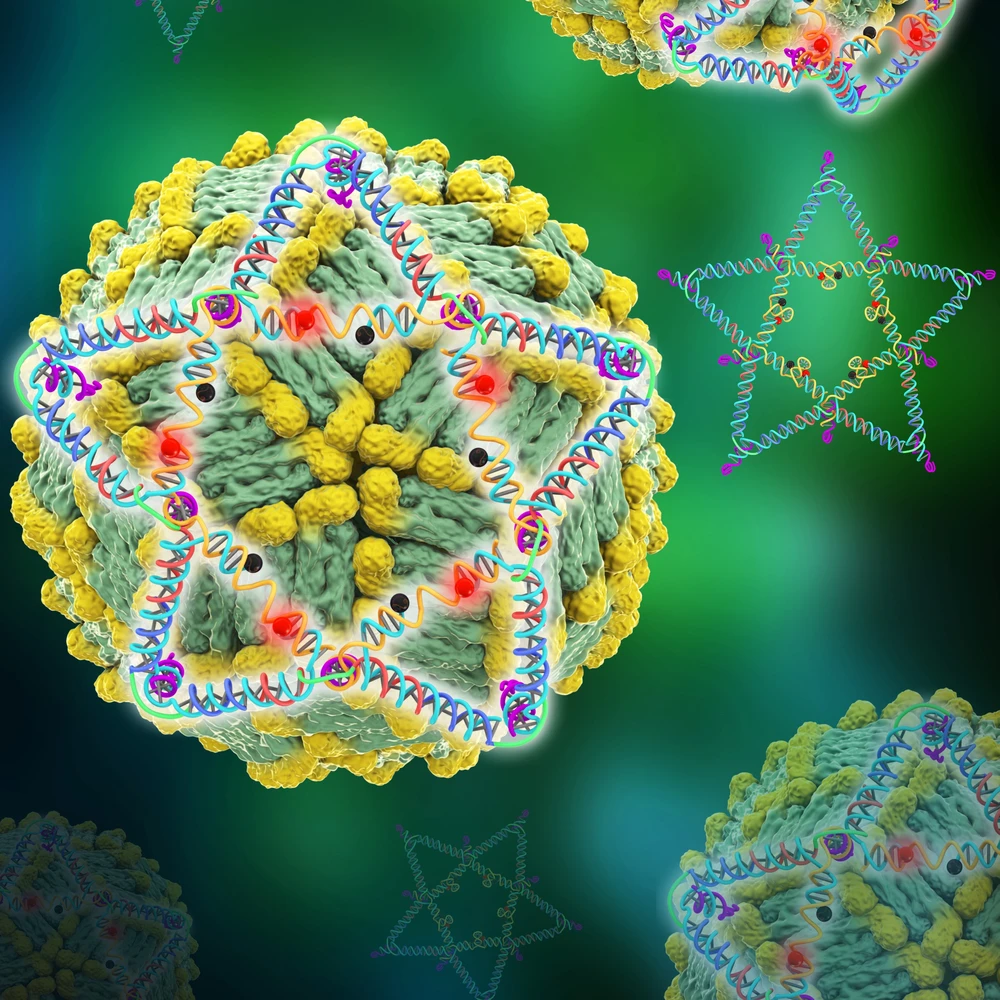
Chemistry professor Xing Wang will create a rapid, sensitive, and affordable virus-sensing method as the winner of a 2021 Mikashi Award, a pre-commercialization Proof-of-Concept Program that bridges the funding “gap” between government-supported innovations that result from university research and the private sector support which converts these innovations into commercial products.
The funds also help transform researchers’ discoveries and technologies into useful products and services that will benefit society. The awards are funded by the Catherine and Don Kleinmuntz Center for Genomics in Business and Society, also known as the Kleinmuntz Center, to support innovations of IGB faculty members.
A Research Associate Professor in the Department of Chemistry, Wang’s project will involve creating a rapid, ultra-sensitive, and inexpensive virus-sensing technology with DNA nanostructures. These star-shaped DNA structures can recognize and capture viral particles and emit a fluorescent signal, which can be read instantly with lab equipment. Since the sensing mechanism does not depend on the amplification of genetic material, the method circumvents the tedious process of extracting and purifying nucleic acid material from the virus.
Additionally, nucleic acid tests can generate false-positive results if there are degraded viral particles in the sample, a complication that can be bypassed by the new technology. Using the award, the Wang lab will continue developing probes to detect influenza and HIV in both a home setting and at medical diagnostic centers. The tests will take less than ten minutes and will cost less than $0.50 per test.
The “DNA Star” strategy was recently created (published in Nat. Chem. (7), 2020, with two patents filed) for the development of rapid (< 10 min), ultrasensitive (PCR equivalent or better), inexpensive (< $0.50 per test) virus diagnostics in both point-of-care (POC) and laboratory high throughput settings.